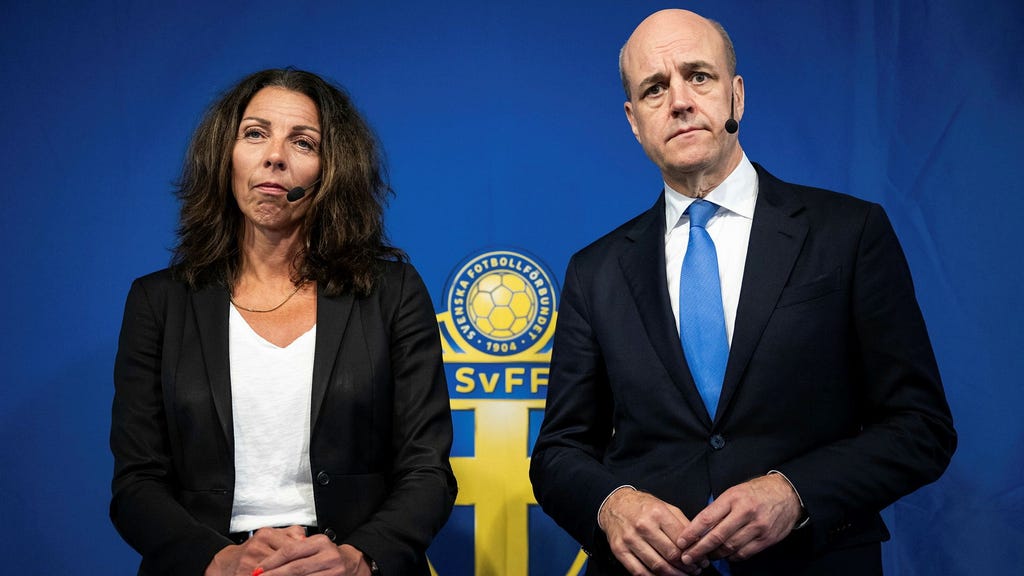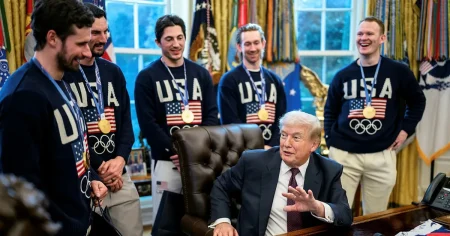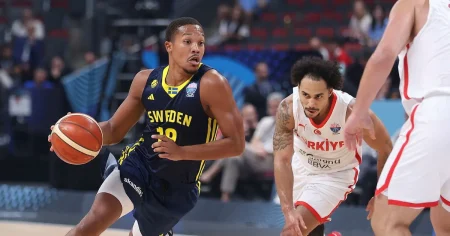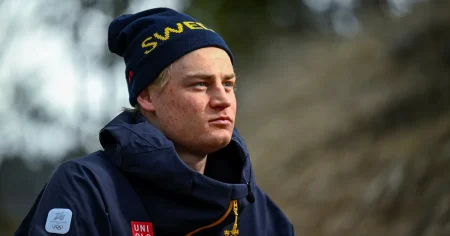The dismissal of Andrea Möllerberg, the General Secretary of the Swedish Football Association (SvFF), has sparked controversy and raised questions about the leadership of Fredrik Reinfeldt, the association’s chairman. The decision, attributed to Möllerberg’s leadership style, has been interpreted by some as a political maneuver by Reinfeldt to protect his own position and further his ambitions for international roles.
Reinfeldt’s actions are seen as characteristic of a seasoned politician, willing to sacrifice a subordinate to deflect criticism and maintain his own power. Möllerberg, in this scenario, becomes the scapegoat for a controversial restructuring process initiated and championed by Reinfeldt himself. This ”messenger-gets-shot” tactic is a familiar trope in politics, where leaders often distance themselves from unpopular policies or decisions by blaming those tasked with their implementation. By removing Möllerberg, Reinfeldt effectively shields himself from the fallout of the restructuring, presenting himself as responsive to concerns about the internal turmoil within the SvFF.
The timing of the dismissal is also noteworthy, coinciding with the upcoming SvFF presidential election. Simon Åström, currently the chairman of Swedish Elite Football, is considered a strong contender for the presidency, posing a threat to Reinfeldt’s continued leadership. By taking decisive action against Möllerberg, Reinfeldt projects an image of decisive leadership, potentially swaying opinion in his favor and bolstering his chances of re-election. This calculated move further reinforces the perception of Reinfeldt as a politically astute operator, prioritizing his own career advancement over the stability and well-being of the organization.
The underlying issue appears to be the clash between the ambitious reform agenda spearheaded by Reinfeldt and Möllerberg, and the resistance to change within the SvFF. The organization, steeped in tradition and resistant to radical shifts, was seemingly unprepared for the sweeping changes envisioned by Reinfeldt, who was elected on a platform of transformation. Möllerberg’s task was to implement these reforms, a role that inevitably led to friction and discontent within the ranks. The resulting upheaval, marked by departures and internal conflicts, ultimately culminated in Möllerberg’s dismissal.
While Möllerberg’s leadership style has been criticized as insensitive and contributing to a negative work environment, it is crucial to acknowledge the context within which she operated. Tasked with implementing unpopular changes in a resistant organization, she faced an uphill battle from the outset. Her previous experience within the Stockholm Football Association should have provided her with insights into the complexities of the football landscape, but the scale and pace of the reforms initiated under Reinfeldt’s leadership likely exceeded her capacity to manage effectively. The combination of a challenging mandate and a potentially abrasive leadership style created a perfect storm, culminating in her dismissal.
The controversy surrounding Möllerberg’s dismissal raises fundamental questions about the future direction of the SvFF. Reinfeldt’s motives remain a topic of speculation, with some suggesting that his primary interest lies in securing international positions within football’s governing bodies. His actions, perceived as politically motivated, cast a shadow over his leadership and raise doubts about his commitment to the long-term well-being of Swedish football. The SvFF now faces a crucial juncture, grappling with internal divisions and uncertainty about its leadership. The upcoming presidential election will be a pivotal moment, determining the course of the organization and the future of Swedish football.
The dismissal of Andrea Möllerberg showcases the intricate interplay of politics and sports governance. While ostensibly based on concerns about her leadership style, the decision appears deeply intertwined with Reinfeldt’s own political ambitions and the ongoing power dynamics within the SvFF. By sacrificing Möllerberg, Reinfeldt aims to protect his position and maintain control over the reform process. However, this strategic maneuver has exposed the underlying tensions within the organization and raised questions about the true nature of Reinfeldt’s leadership. The upcoming election will be a crucial test of his political acumen and his ability to retain the confidence of the football community. The outcome will have profound implications for the future of Swedish football and its standing on the international stage. The fallout from Möllerberg’s dismissal serves as a stark reminder that even in the realm of sports, political maneuvering and power plays can significantly impact the trajectory of organizations and the careers of individuals involved. The focus now shifts to the presidential election, where the true cost of this political gambit will become apparent.














